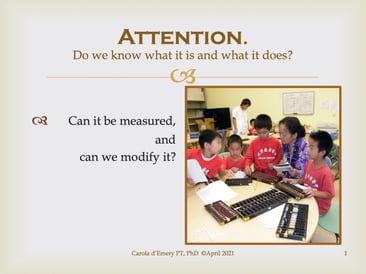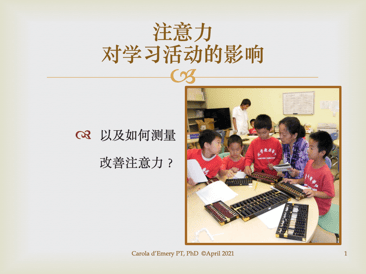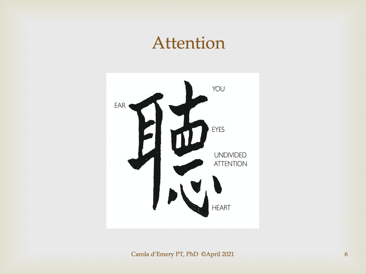- SERVICES
- SUNNY DAYS EARLY CHILDHOOD SERVICES
- OUR THERAPISTS
- SUNNY DAYS EARLY INTERVENTION SERVICES
- SUNNY DAYS BEHAVIORAL / OCCUPATIONAL / PHYSICAL / SPEECH THERAPY SERVICES
- SUNNY DAYS AUTISM SERVICES
- SUNNY DAYS EVALUATIONS & ASSESSMENTS
- SUNNY DAYS BEHAVIOR ASSESSMENTS
- INDEPENDENT INITIAL ELIGIBILITY EVALUATIONS
- FAMILY-CENTERED PLAY BASED EVALUATIONS
- EQUIPMENT & ASSISTIVE TECH REC'S
- HOW TO GET SERVICES
- STATE REQUIREMENTS FOR SERVICES
- VIRTUAL INTERVENTION
- SUNSHINE CENTER
- FAMILY RESOURCES
- TRAINING & WORKSHOPS
- JOIN OUR TEAM
- Blog
- Home
- About
- RESOURCES
- SERVICES
- SUNNY DAYS EARLY CHILDHOOD SERVICES
- OUR THERAPISTS
- SUNNY DAYS EARLY INTERVENTION SERVICES
- SUNNY DAYS BEHAVIORAL / OCCUPATIONAL / PHYSICAL / SPEECH THERAPY SERVICES
- SUNNY DAYS AUTISM SERVICES
- SUNNY DAYS EVALUATIONS & ASSESSMENTS
- SUNNY DAYS BEHAVIOR ASSESSMENTS
- INDEPENDENT INITIAL ELIGIBILITY EVALUATIONS
- FAMILY-CENTERED PLAY BASED EVALUATIONS
- EQUIPMENT & ASSISTIVE TECH RECS
- HOW TO GET SERVICES
- STATE REQUIREMENTS FOR SERVICES
- VIRTUAL INTERVENTION
- SUNSHINE CENTER
- FAMILY RESOURCES
- TRAINING & WORKSHOPS
- JOIN OUR TEAM
- Blog
- News
- Contact Us
Sunny Days Blog
Sunny Days Hosts International Child Development Training

In May 2022, Sunny Days finished a fourteen-month-long training project focused on supporting teachers’ understanding of the relationship between child development, behavior, and learning. The web-based training took place in Chengdu, China—our first-ever program of this kind presented by Sunny Days outside the United States. This was also the first time a U.S.-based early intervention organization has offered a training program in China.
We first envisioned this project in 2020, and the Sunny Days International Training Team then created a series of 90-minute lectures to help educators and therapists understand the link between child development, behavior, and learning.
The final curriculum was developed by Carola d’Emery, PT, PhD; Kathleen Flatley, MS, OTR; and Scott Rieger, NCC, MA, BCBA. It is written at a post-graduate learning level and contains 19 hours of instruction, including four applied knowledge case studies.
We developed this comprehensive child development course over 450 hours of researching, curating, and creating materials that would be a perfect educational and cultural match for Chinese attendees.
Featured topics include:
- Social Emotional Development from Birth to 16 Years: What is it & Why is it Important?
- The Hidden Attraction of Electronic Games and the Challenges to Self-Discipline
- Sensory Processing: Behavior and Learning
An explanation of learning as a sensory-based process that determines behavior in all circumstances, as well as how behavior affects learning.
- Managing Problematic Behavior
The basic rules educators, therapists, and parents need to know to improve behavior and social emotional responses.
- Attention & Learning
Exploring the neurological function of attention and its importance in every learning process, as well as how different types of attention are required for each moment of our lives.


- Attention Management
How to manage attention and utilize evidence-based strategies in educational and home environments.
- The Behavioral Manifestations of Child Abuse
Behaviors present in children experiencing abuse, which often mimic attention disorders or anger-based behaviors, do not respond to the sensory-behavioral strategies typically used to manage these challenges. We reviewed defense mechanisms utilized by abuse victims and suggestions to create support systems and safe places for these children.
The seminar also included time to work through several case studies:
Case Study #1:
A seven-year-old first grader reportedly speaks and shouts in class for no apparent reason. He is observed to suddenly stand on his desk or physically attack a classmate without provocation. The disruptions happen at any time of day, and a change of facial expression precedes the vocalizations. The child’s cognitive levels are perceived as normal, and peers socially criticize him.
The team analyzed the episode frequency and intensity, provided data-recording materials, and with the results at hand, recommended a pediatric evaluation to rule out possible auditory hallucinations and/or Tourette's syndrome. The child was diagnosed with Tourette's.
Case Study #2:
A six-year-old first grader who becomes distracted very quickly in all of his classes, engages in play with papers and pencils, starts singing or talking loudly, and thus distracts the rest of the class. His desk and materials are disorganized, and these behaviors have been present since early in his life. He appears to understand the materials taught, but he turns out messy, disorganized work every time.
After teachers tracked the disruptive behaviors, the team recommended seating assignment changes, frequent checks by the teachers to make sure he was on target, shortening assignments, and giving clear and simple directions (shorten the length of sentences/paragraphs), rewarding success, and measuring how long he attends to tasks. The child is likely to have attentional challenges that need to be reviewed by a pediatrician.
Case Study #3:
A 12-year-old six grader becomes enraged during competitive sports, activities/games in school and will physically attack his teammates.
The team recommended observing and making notes of what happens immediately before fights break out and discover the student is verbally bullied by his classmates. Recommendations included instructions to teach self-calming breathing, teach self-regulation, and impulse control strategies, and to introduce consequences to those who engage in bullying.
Case Study #4:
An 11-year-old sixth grader gets distracted in class by playing with any small object he can secure, and will stay disengaged from the teacher's instruction for long periods of time. He is perceived as a smart child but can fall behind because of frequent lack of attention in school.
After the teachers gathered information, it was apparent that this child is a tactile kinesthetic learner, who needs to touch and explore any and all objects of interest, in order to learn. The team designed a program that allows for tactile breaks where the child can play, in exchange for a period of attention when all tactile distractions are removed from his reach, which worked very well for the student and the teachers.
More than 250 educators attended this training, and two participants received recognition from their school district for successfully implementing sensory-behavioral strategies offered during the training, which were designed to improve compliance with school work.
If you are interested in hosting Sunny Days for a child development training—inside or outside the U.S.—please contact us.
Photo by Christian Lue on Unsplash
Sunny Days
Sunny Days is one of the nation's leading early intervention and autism services providers, serving children with developmental needs in New York, Oklahoma, California, New Jersey, Pennsylvania ,and Delaware. Founded in 1994, it currently has over 2,000 active practitioners. In the past two years, Sunny Days has provided well in excess of 1,000,000 individual sessions. Sunny Days was founded by two healthcare professionals — Joyce Salzberg, LCSW and Donna Maher, RN — whose passion for quality healthcare is core to its mission.

